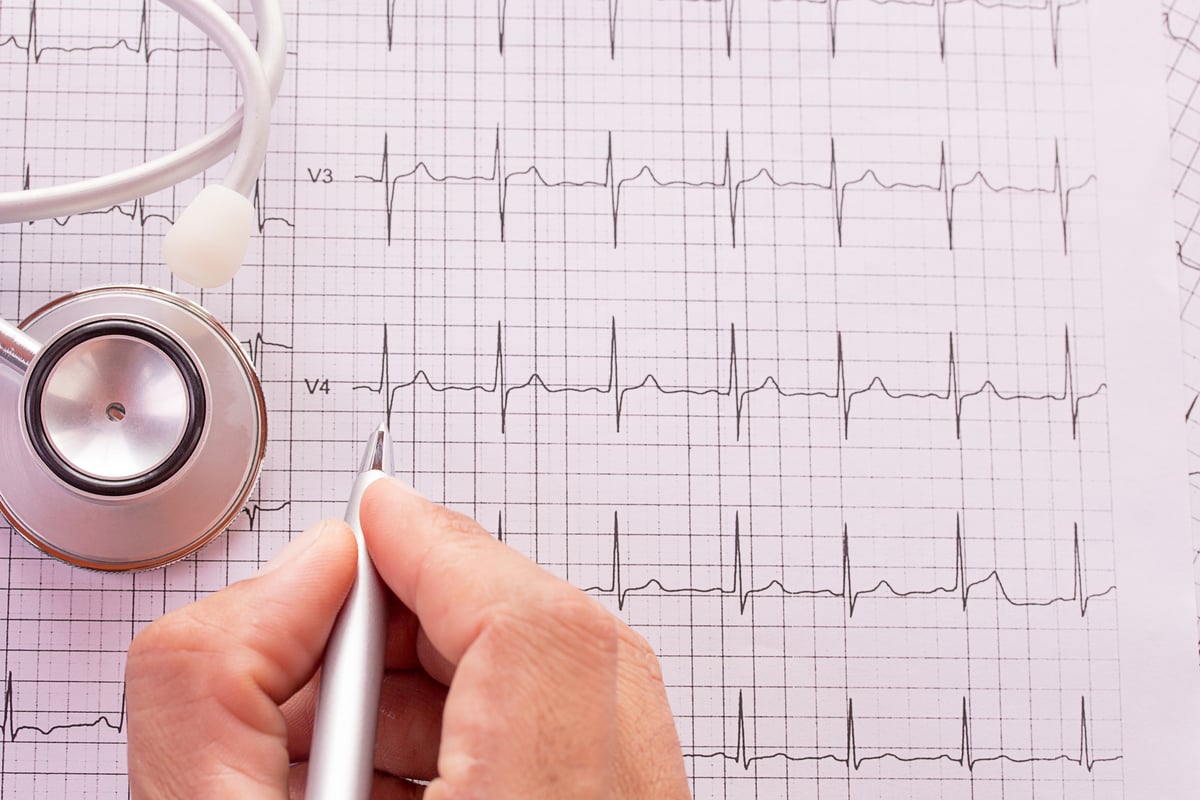EKG classes near me

Whether you're a recent high school graduate or a seasoned professional looking to switch careers, being an EKG technician offers a fantastic opportunity to gain valuable skills and knowledge. Did you know that the demand for EKG technicians is projected to grow by 10% in the coming years?
At Dreambound, we help over 100,000 people find job training programs every month, so we know the ins and outs of all the different certifications out there. EKG is among our top 10 most popular certifications as of March 2024, although we believe it's underrated!
Here's why we like the EKG certification over other allied health certifications here at Dreambound:
- Pays better than Certified Nursing Assistant and Home Health Aide, other popular allied health certifications. Other advantages over those two: EKG programs cost about the same, take the same amount of time to get, and can be done online.
- Top 2 most affordable and short certification. Check out Phlebotomy training for our other favorite. Classes may range from $500 to $2,000.
- Fully online training. Study from the comfort of your own home
- It's patient-facing but doesn't burn you out like other patient-facing roles might. Healthcare is challenging, and burn out rates are at an all-time high in roles where workers have to provide direct patient care and be on their feet all day. As an EKG technician, you'd get to be in healthcare and help people without having to do much of the physical & hard work. You also get to sit down!
- Very interesting from a clinical perspective. Get to help with measuring and diagnosing heart issues
- Get your foot in the door in healthcare
- If you're pre-med -- it's different and you'll stand out. EKG Technician, because it's a less popular certification, also has stronger job demand than a lot of other allied health roles
What does an EKG Technician do?
An EKG technician is responsible for performing electrocardiogram tests to monitor and record the electrical activity of a patient's heart. These tests help doctors diagnose and treat heart conditions. With the increasing demand for healthcare professionals, pursuing a career as an EKG technician can offer job stability and a rewarding opportunity to contribute to patient care. Some other responsibilities of an EKG technician include maintaining EKG equipment, recognizing abnormalities, preparing patients, and performing related tasks as assigned.
How to become an EKG technician
Here are the general requirements you must prepare to complete your journey toward getting your EKG technician certification. First, make sure you have a high school diploma or your GED. Then, find an accredited training program to enroll in. During this program, you'll gain practical experience, which will be beneficial as you enter the workforce. To become certified, you'll need to pass an exam and meet specific requirements, such as completing the training or gaining work experience.
How long does it take to become an EKG Technician?
EKG technician training programs usually last between 12 and 24 months, although some schools may offer a shorter program that can last from 3 to 6 months. EKG training programs cost between $1,000 and $4,000. A high school diploma isn't necessarily required unless you're training at a community college.
What are the pros and cons of being an EKG Technician?
In every job, there are always going to be pros and cons. Before diving into a career path, it is important that you weigh these and make an informed decision. EKG technicians are surely a rewarding vocational career choice. The pros of being one include job stability, a competitive salary, and plenty of opportunity for career advancement. However, it is important to note that the job can be physically demanding, requiring long periods of standing and the ability to lift and move patients. EKG technicians may also experience high levels of stress due to the critical nature of their work.
Where can an EKG Technician work?
An EKG technician can work in various settings. These may include hospitals, clinics, diagnostic imaging centers, and private medical practices. Some EKG technician jobs can be found in specialized cardiac care units or cardiovascular departments. EKG technicians can also work in nursing homes and the like to ensure the health of elderly patients, who are more susceptible to heart-related problems.
How much does an EKG Technician make?
The salary of an EKG technician can vary based on factors like experience, location, and the employer. In May 2022, the average annual wage for cardiovascular technologists and technicians was $63,020, according to the Bureau of Labor Statistics (BLS). The average hourly wage for diagnostic medical sonographers and cardiovascular technologists and technicians was $37.60. It's important to note that these figures may change over time due to fluctuations in the number of certified EKG technicians and other factors impacting the job market.

Harold Roldan is a Growth team member at Dreambound. With a background in IT, he works with data and automation to improve team efficiency and workflows. He spends his free time playing musical instruments or studying data, computers, and technology.




